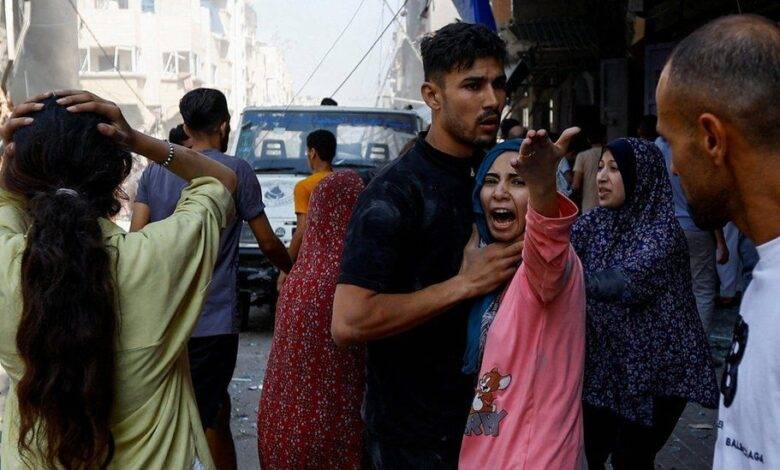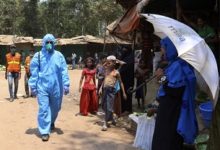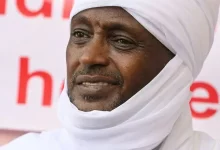
More than 700 Palestinians have been killed by Israeli air strikes in the Gaza Strip over the past 24 hours, the Hamas-run health ministry says.
Israel’s military said it struck 400 “terror targets” and killed several Hamas commanders over the same period.
It also declared that it would not reduce its attacks despite Hamas’s release of another two hostages.
UN aid agencies meanwhile pleaded for sustained and safe humanitarian access, warning they were “on their knees”.
A third of hospitals in Gaza are no longer functioning due to shortages of electricity, medicine and staff, and the shortage of clean water is now critical.
Israel launched its bombing campaign against Hamas – which Israel, the UK, US and other powers class as a terrorist organisation – in response to an unprecedented cross-border attack on 7 October in which at least 1,400 people were killed and 222 others were taken hostage.
Nearly 5,800 people have been killed in Gaza since then, according to the health ministry.
Intense Israeli air strikes overnight hit hundreds of locations across Gaza.
Some of those killed in the southern cities of Khan Younis and Rafah were displaced people who had fled the north in response to an Israeli military order to evacuate the area for their own safety, local officials said.
They included 13 members of one family from Gaza City, who had been staying in a residential building in Qarara, on the north-eastern outskirts of Khan Younis, where the population has swelled from 400,000 to 1.2 million.
A relative who survived said: “We were sleeping and suddenly a big explosion happened. All of my family are dead.”
The BBC’s Rushdi Abu Alouf says there was grief, shock and anger at the city’s hospital on Tuesday morning, as bodies were brought out of the mortuary and taken away for burial. Mourners said there was “no safe place” in Gaza.
Later, about 20 people were reportedly killed in a strike on a residential building in the heavily-populated Amal area of Khan Younis. —BBC





